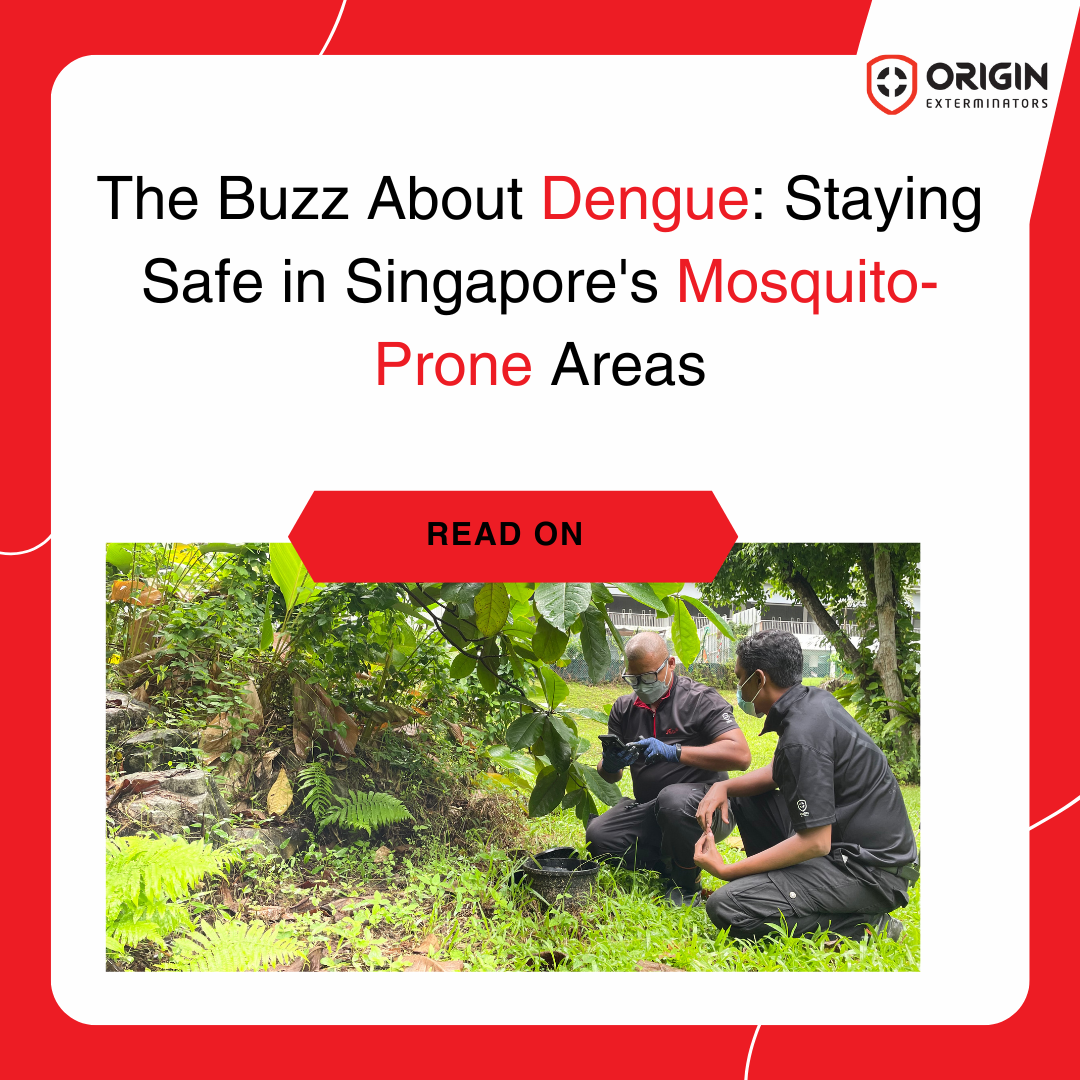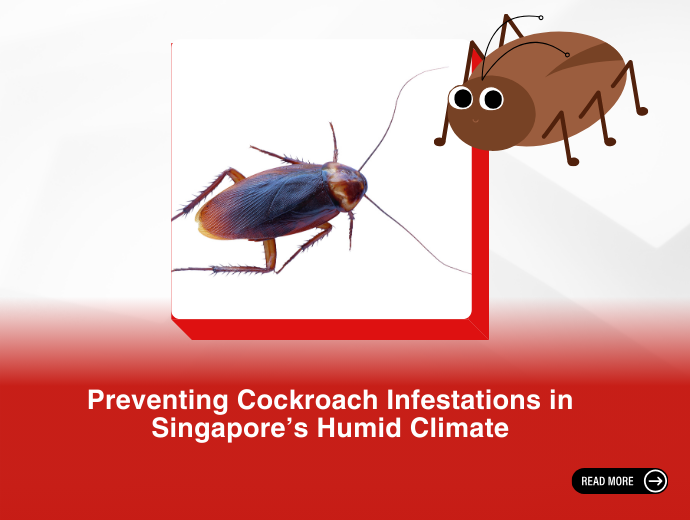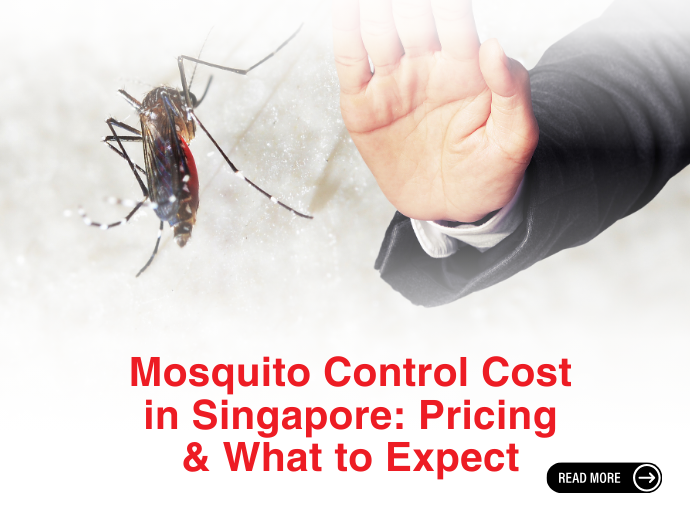Singapore is no stranger to the challenges posed by dengue fever. As a tropical city-state, the country's warm and humid climate provides the perfect breeding ground for the Aedes mosquito, the primary vector responsible for transmitting the dengue virus. In recent years, Singapore has experienced a surge in dengue cases, with outbreaks occurring in various parts of the island.
According to the National Environment Agency (NEA), Singapore recorded over 5,000 dengue cases in the first quarter of 2024, more than double the 2,360 cases reported in the same period last year. As of 25 March 2024, dengue has led to a total of seven deaths already due to local dengue infection. This upward trend highlights the persistent threat of dengue and the need for comprehensive measures to combat the spread of the disease.
In this article, we’ll not only cover all about dengue prevalence in Singapore and its hotspots but also provide insights on what you can do to prevent it from spreading.
Dengue Hotspots in Singapore
Certain areas in Singapore are more prone to dengue outbreaks due to various environmental and demographic factors. These areas, known as "dengue hotspots," require heightened vigilance and targeted interventions.
The NEA regularly monitors and identifies these hotspots based on factors such as the number of reported dengue cases, the presence of Aedes mosquitoes, and the availability of potential breeding sites.
By being aware of these dengue hotspots, you can take extra precautions when visiting or residing in these areas, ensuring your safety and that of your community.
The Solution and the Challenge
Effective mosquito control is the cornerstone of dengue prevention in Singapore. The NEA, in collaboration with various government agencies and community stakeholders, has implemented a comprehensive approach to address the mosquito population and reduce the risk of dengue outbreaks.
The success of mosquito control efforts in Singapore has been evident in the past, where targeted interventions have helped to curb the spread of dengue and prevent major outbreaks. In fact, just last year, stepped-up prevention and control measures taken to prevent a dengue outbreak saw the number of dengue cases drop to 9,949 in 2023, down from the 32,173 cases seen in 2022. This 69 percent decrease was a testament to the power of community awareness and combined effort.
However, the ongoing challenge lies in maintaining a consistent and robust mosquito control program to keep the dengue threat at bay.
What’s The Government Doing?
The Singapore government, in collaboration with various agencies and the community, continues to employ a comprehensive approach to mosquito control to combat the dengue threat. This multifaceted strategy encompasses the following techniques:
Source Reduction: The NEA and local authorities work diligently to identify and eliminate potential mosquito breeding sites, such as stagnant water sources, across the island. This includes regular inspections and the removal of discarded containers, clearing of drains, and proper maintenance of public spaces.
Larviciding and Adulticiding: The authorities utilize specialized larvicides and adulticides to target mosquitoes at different stages of their life cycle. Larvicides are applied to water sources to prevent the development of immature mosquitoes, while adulticides are used to eliminate adult mosquitoes.
Surveillance and Monitoring: Continuous surveillance and monitoring of mosquito populations and dengue cases are crucial for early detection and rapid response. The NEA operates a comprehensive monitoring system, including the deployment of ovitraps and adult mosquito traps, to gather data and inform targeted interventions.
Trapping: In addition to source reduction and larviciding/adulticiding, the authorities employ specialized traps to capture and remove adult mosquitoes from the environment. These traps are strategically placed in areas with high mosquito activity to reduce the overall population.
Awareness and Community Engagement: Public education and community involvement are integral components of Singapore's mosquito control efforts. The authorities engage with residents, businesses, and community organizations to raise awareness about dengue prevention and encourage active participation in mosquito control initiatives, such as the Mozzie Wipeout campaign.
What Must Residents And Visitors Do?
As a resident or visitor in Singapore, there are several proactive steps you can take to protect yourself and your loved ones from the risks of dengue:
- Eliminate Breeding Grounds: Regularly inspect your home and immediate surroundings for any potential mosquito breeding sites, such as stagnant water in flower pots, gutters, or discarded containers. Ensure these areas are kept dry and free of standing water.
- Use Mosquito Repellent: Apply an effective mosquito repellent, especially when spending time outdoors. Choose a repellent that contains active ingredients like DEET, picaridin, or oil of lemon eucalyptus.
- Wear Protective Clothing: Opt for long-sleeved shirts, long pants, and socks when possible to minimize exposed skin and reduce the risk of mosquito bites.
- Install Mosquito Screens: Ensure that your windows and doors are equipped with tight-fitting screens to prevent mosquitoes from entering your living spaces.
- Monitor Symptoms: Be vigilant for the early signs of dengue, such as fever, headache, muscle and joint pain, and rash. Seek immediate medical attention if you suspect you may have contracted the virus.
Going Beyond The Basics: Rope In Experts
Combating the dengue challenge in Singapore requires a comprehensive and coordinated effort, which is why roping in the expertise of professionals is highly recommended. Specialized mosquito control companies, such as Origin, possess the knowledge, resources, and advanced techniques necessary to tackle the issue effectively.
These experts have a deep understanding of the Aedes mosquito's biology and behavior, enabling them to develop targeted and efficient control strategies. They have access to the latest technologies, products, and methodologies to identify and eliminate breeding sites, reduce mosquito populations, and minimize the risk of dengue transmission.
Moreover, professional mosquito control companies often work closely with the authorities and stay up-to-date with the latest regulations, guidelines, and best practices in the field. This ensures that their interventions are not only effective but also compliant with the relevant laws and regulations.
Introducing Origin's 3+1 Mosquito Prevention Program
To address the persistent dengue threat in Singapore, Origin has developed a comprehensive 3+1 Mosquito Prevention Program that combines the most effective mosquito control techniques:
- Dual Misting: A combination of larviciding and adulticiding
- Source Reduction: Thorough inspection and elimination of potential mosquito breeding sites
- Monitoring: Continuous monitoring of mosquito activity through specialized traps and data analysis
- Trapping: Advanced mosquito traps to capture and remove adult mosquitoes from the targeted areas.
The fight against dengue in Singapore is an ongoing battle that requires the collective effort of the authorities, the community, and specialized professionals. If you’re looking for a targeted mosquito control program by experts? Sign up for ORIGIN's 3+1 Mosquito program.
Remember, staying vigilant, following dengue safety tips, and partnering with experts like Origin can make a significant difference in reducing the risk of dengue in Singapore. Together, we can create a safer and more mosquito-free environment for everyone to enjoy.




.png)
